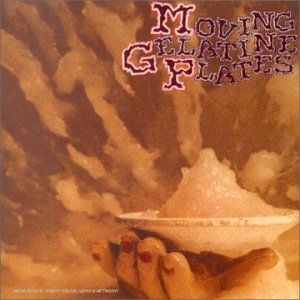|
|
|
01 |
London Cab |
|
|
|
07:33 |
|
|
02 |
X-25 |
|
|
|
01:58 |
|
|
03 |
Gelatine |
|
|
|
08:16 |
|
|
04 |
Last Song |
|
|
|
15:30 |
|
|
05 |
Memories |
|
|
|
03:21 |
|
|
06 |
Destruction (bonus) |
|
|
|
02:49 |
|
|
07 |
Tout Autour De Toi (bonus) |
|
|
|
04:15 |
|
|
08 |
Frequence Nocturne (bonus) |
|
|
|
04:25 |
|
|
09 |
Solaria (bonus) |
|
|
|
03:39 |
|
|
|
| Country |
France |
| UPC (Barcode) |
3426300040626 |
| Packaging |
Jewel Case |
| Spars |
DDD |
| Sound |
Stereo |
|
|
|
Moving Gelatine Plates
self-titled
Musea (4062)
France 1971
Maurice Helmlinger, organ, trumpet, soprano saxophone, tenor saxophone, flute;
Gerard Bertram, electric guitar, vocals, acoustic guitar;
Didier Thibault, bass, vocals, 12-string guitar;
Gerard Pons, drums, percussion
Tracklist:
1. London Cab — 7:30
2. X-25 — 2:00
3. Gelatine — 8:10
4. Last Song — 15:20
5. Memories — 3:15
6. Destruction — 2:47
7. Tout autour de toi — 4:13
8. Frequence nocturne — 4:22
9. Solaria — 3:45
total time 51:50
matt
A short-lived French progressive band that fit vaguely within the boundaries of the Canterbury sound, Moving Gelatine Plates made two excellent albums in the early 1970s before they called it a day (the other is 1972's The World of Genius Hans). If forced to choose, I would side with the minority who prefer the self-titled debut, but any fans of jazz-inspired progressive will definitely need to have both.
Moving Gelatine Plates (supposedly, the name was taken from a passage in a Steinbeck novel) played mostly-instrumental music, with the few vocals being in English (English was chosen, according to the liner notes, because of "the universality of the English language, it's ability to reach a wide public and considering that there was no real message in their lyrics"). Much like the debut by Supersister, this is jazzy progressive rock that nevertheless stays accessible because the pieces are stocked with melodic themes that were thoroughly rehearsed by the band prior to recording the album. The music can be among the more aggressive of the Canterbury-styled bands (thank the lively rhythm section, especially the snare-drum attack of Gerard Pons), but it's a playful aggressiveness not given to darkness or any great contrasts in mood. In fact, the emotional content of this music in general is fairly low, but that is often the case with jazz-oriented progressive. The appeal of the album lies in the great musicianship of the players and the verve with which they tear through this intricate material.
review by Matt P. — 4-6-05 — post a comment (0)
© ground and sky
